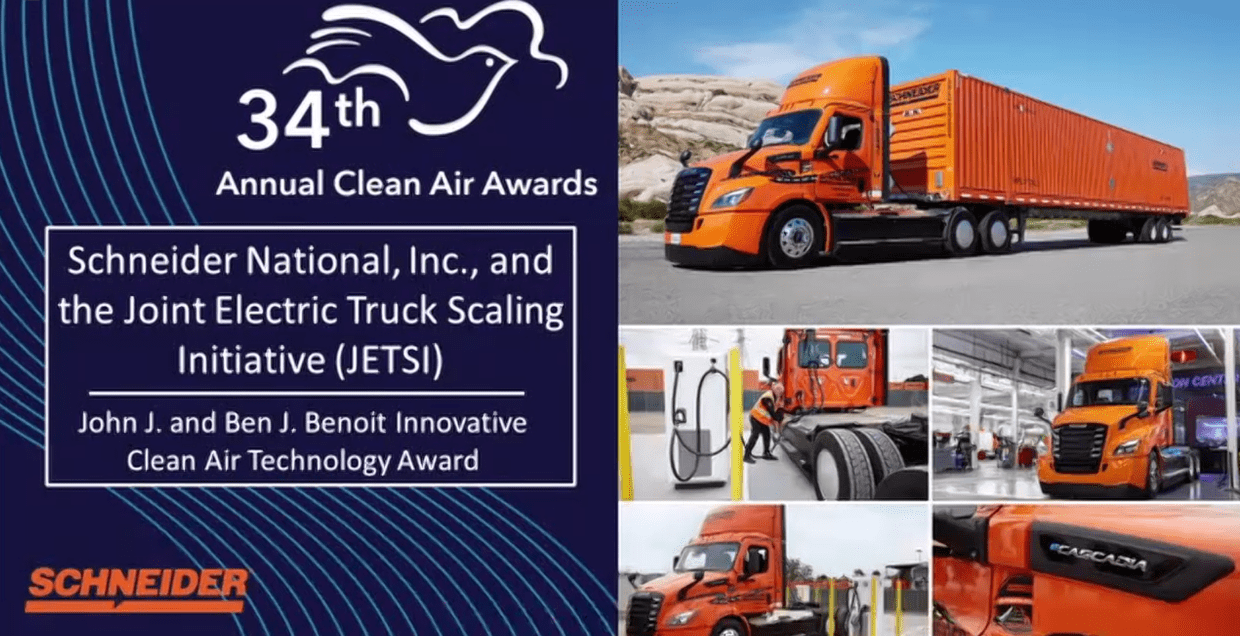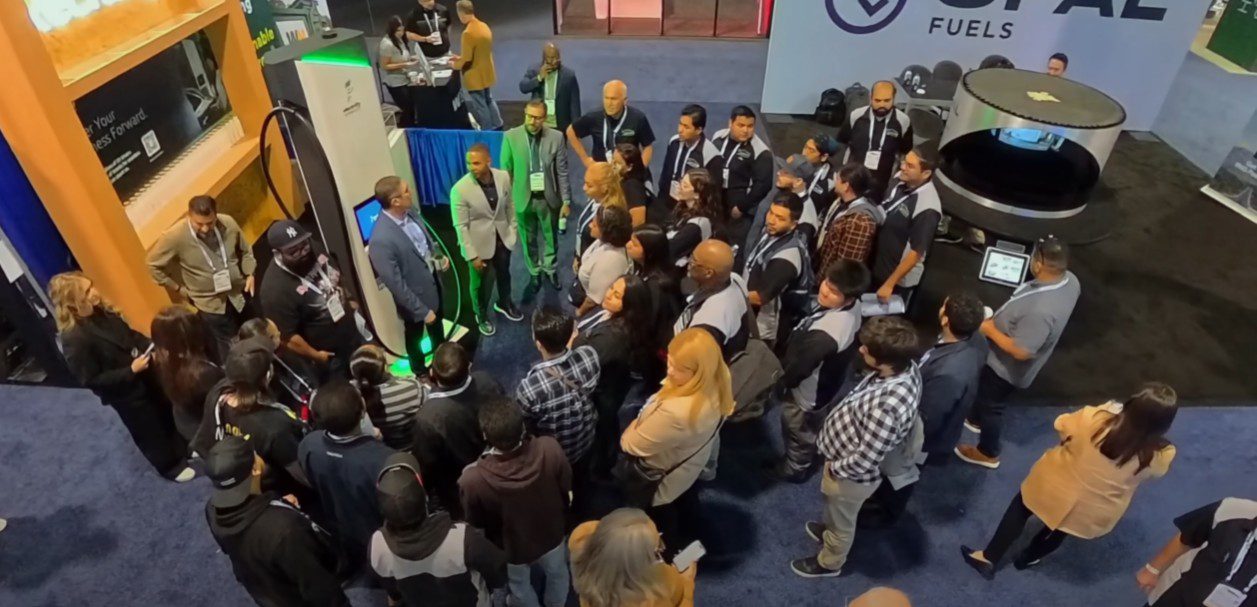
JETSI project partner, Schneider, has been selected as the recipient of the prestigious John J. and Ben J. Benoit Award for Innovative Clean Air Technology for the 34th Annual South Coast Air Quality Management District Clean Air Awards. This accolade celebrates Schneider’s commitment to sustainability and its proactive use of 50 battery-electric Class 8 trucks funded by CARB and CCI with 16 350 kW chargers funded by the CEC to reduce environmental impact through the JETSI project.
As a JETSI project partner, Schneider is demonstrating its commitment to accelerating the adoption of electric trucks at scale. Recently, Schneider deployed 50 Freightliner eCascadia battery-electric trucks through the JETSI project, marking a significant milestone in its journey towards decarbonized freight movement. Schneider added additional trucks partially funded through other grant programs to bring its total electric fleet to near 100 electric Class 8 tractors operating from its South El Monte logistics facility, which includes a purpose-built electric truck charging facility with 32 ports of DC Fast charging.
Funding for 50 of Schneider’s was made possible by JETSI, the first battery electric truck project jointly funded by the California Air Resources Board and the California Energy Commission, which together awarded the project $27 million. Additional funding was provided by South Coast Air Quality Management District, Mobile Source Air Pollution Reduction Review Committee, the Port of Los Angeles and Southern California Edison. The JETSI project is part of California Climate Investments, a statewide initiative that puts billions of cap-and-trade dollars to work reducing greenhouse gas emissions, strengthening the economy and improving public health and the environment, particularly in overburdened communities.
These state-of-the-art vehicle deployments represent a monumental shift in the freight industry reducing regional emissions as they travel along some of Southern California’s most heavily congested freight corridors. These changes benefit everyone, especially those residents living in overburdened communities, which is a key goal of California Climate Investments projects like JETSI.
This initiative exemplifies the JETSI project partners’ collective commitment to taking risks as early adopters to demonstrate that large, at-scale electric fleets can perform freight logistics successfully. The John J. and Ben J. Benoit Award for Innovative Clean Air Technology is a testament to both Schneider and the JETSI project’s dedication to sustainability and helps raise awareness of the lessons-learned that other freight carriers can leverage as they design and deploy their own zero-emission fleets.
By harnessing the latest advancements in clean air technology, Schneider is not only reducing greenhouse gas emissions, but learning and fine-tuning new fleet management processes for environmentally responsible fleet operations.
The JETSI project is honored to receive this esteemed recognition from the South Coast Air Quality Management District and hopes to encourage further adoption of zero-emissions technology to reduce emissions in the commercial transportation sector.
As the commercial transportation sector continues to drive innovation, foster collaboration, and make strides towards a cleaner tomorrow, Schneider National Inc. and the JETSI project are proud to be at the forefront of this transformative journey, and look forward to shaping a brighter, more sustainable world.


